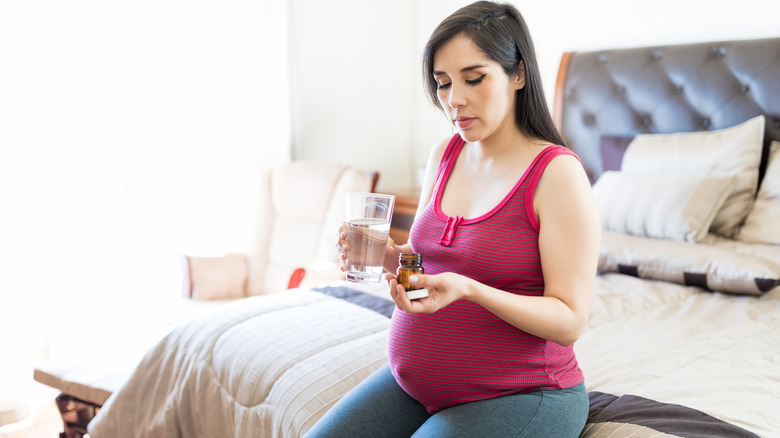How To Choose The Best Prenatal Vitamin
If you're pregnant, there's a good chance you already know the importance of filling your plate with lean proteins, healthy fats, whole grains, and fruits and vegetables. While eating healthy and nutritious foods is the best way to get all of the essential vitamins, minerals, and nutrients that you need during pregnancy, simply maintaining a healthy and well-balanced diet may not be enough to sustain both you and your baby. According to experts at the Cleveland Clinic, it can be difficult to meet your body's increased nutrient demands when you're pregnant through just food alone.
That's where prenatal vitamins come into play. As it turns out, prenatal vitamins are supplements specifically formulated to safely deliver key nutrients to pregnant people. "Prenatal vitamins can give you that extra assurance that you're getting an adequate amount of vitamins and minerals that help make you healthy," Shellie Hawk, a certified nurse midwife, told the Cleveland Clinic.
Look for prenatal vitamins that have these nutrients
When searching for the best prenatal vitamins for you, it's important to look for products that are made with high-quality ingredients and contain the right vitamins and minerals you need to help support your body during pregnancy. For instance, it's crucial to make sure that your prenatal vitamins contain iron and folic acid, both of which your body needs more of when you're pregnant. According to the Mayo Clinic, iron can help support the development of the fetus and placenta and help reduce the risk of anemia, while folic acid can help prevent birth defects and abnormalities in the brain and spinal cord.
It's also imperative to find prenatal vitamins that contain zinc, iodine, and vitamins A, B, C, and E, all of which can help promote fetal development, like bone health, eyesight, immunity, and cognitive abilities. In addition, omega-3 fatty acids can help support fetal brain development.
While prenatal vitamins usually don't have any side effects, they can sometimes cause constipation. You can help prevent this by drinking plenty of fluids, exercising regularly, and increasing your daily fiber intake.


